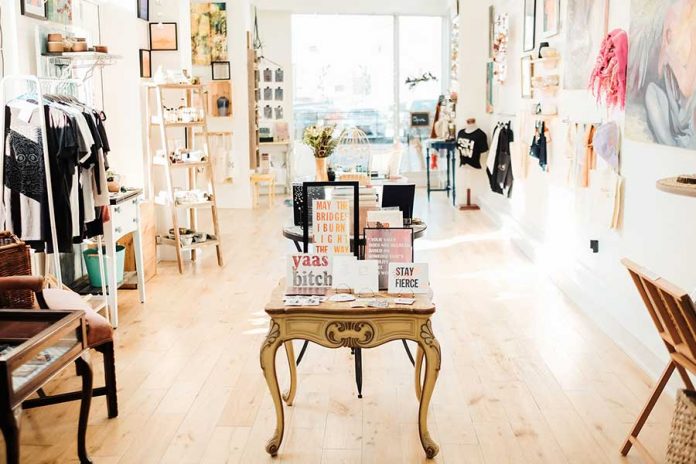After over two years in business in the Philadelphia arts community, The Common Room will close its doors on Jan. 31.
The gallery and workshop space was created by owner Chelsey Everest Eiel, who is originally from Portland, Maine. She moved to Philadelphia in 2013 while completing her MFA in creative nonfiction. After earning her degree, she began facilitating a trauma-informed workshop for college women at the University of Pennsylvania.
Following the 2016 presidential election, Eiel felt an urgency to make the workshop more accessible to women and nonbinary folks in the community and began searching for commercial space that could host it. By August 2017, she opened The Common Room, 1509 N. Front St., as a space to feature fine art and wares by local womxn and nonbinary artists.
Eiel said the decision to close The Common Room was mostly due to no longer being able to give the space the time commitment it needs.
“I started the space with a self-sustainable model that was focused on providing community space for workshops around expressive therapies and art-making,” Eiel said. “Myself, I’m a trauma-informed writer. I was leading those workshops. That was the motivation behind opening the space to begin with.”
But in August, Eiel was offered a position as Title IX project manager at Swarthmore College, where she will be facilitating the same writers’ workshops for college students and offering programming similar to what she offers at The Common Room. She tried to keep the space open and pay for part-time help but had to allow the studio to be used by an artist in return for their assistance at the gallery.
“I was still there on the weekends,” she said, “So I’ve been working seven days a week for the past six months. Unfortunately, on that end, it wasn’t sustainable for me.”
Eiel added that other factors, like the gentrification of the neighborhood, had an impact on continuing to run The Common Room.
“My building has been surrounded by construction in Fishtown, which has had an impact on traffic,” she said. “There’s also the fact that I built the business on my relationships with people, and when I’m not there, I noticed it had a negative impact on how we were doing.”
Eiel said The Common Room made a noticeable impact on Philadelphia’s art community since opening.
“The most valuable feedback that I’ve gotten is that it has opened doors,” she said. “It has allowed women and femme-identified nonbinary folks who really wanted to get into the arts’ scene to get a foot in the doorway.”
The Common Room started with 16 student artists in August 2017, and Eiel said, the space has now hosted over 200 artists, from students to emerging and professional artists.
“It’s provided an entryway for folks who otherwise didn’t see themselves represented in the scene or didn’t know another way to enter the scene,” she said.
Eiel said that The Common Room attracted a lot of attention for and by artists and patrons from the LGBTQ community with its exhibitions.
“There was a strong voice for the LGBTQ community from the very beginning,” she said. “We had an event last May called “Menstrala,” which was Philly’s first menstrual art show. I was a little hesitant when it was first pitched because it’s so true that traditional period spaces often become very gender exclusive. Because we have a strong presence of LGBTQ artists in our community, and because that is really essential to the idea of inclusivity and visibility that is true to the mission of this space, I wanted to be intentional about what that type of art show was going to look like. I was so excited that we had so much representation of what cycles mean outside of the gender binary. At the end of the day, what the show really expressed was that all human beings have cycles, and not all people who identify as women bleed, and not all people who bleed identify as women.”
Eiel said that was very important to her and, she hopes, the takeaway from the show.
Even though The Common Room is closing, “as a physical arts’ space, the ideals behind it will still continue online,” Eiel said.
She also has a few grant projects in the works that will allow her to write a monthly blog hosting conversations with “women and femme-identified artists who are really using their art-making as an intentional expressive therapy and speaking to their own self-development.”
She wants to continue highlighting the work of these folks and offer artists the visibility they deserve.
Eiel said that other artists, spaces and organizations will help to fill the physical void left in the arts community by the closing of The Common Room.
“There are so many change-makers and organizations in Fishtown alone and definitely in Philadelphia as a greater whole,” she said. “Even right down the street from me is Tessera Arts Collective, which is a place for queer women of color to show their work. I believe in the concept of creating self-sustaining spaces that aren’t driven by a competitive traditional business model but are built and predicated on community building. I believe there’s a need for that.”
For more information about The Common Room, visit https://www.thecommonroomphilly.com/.
